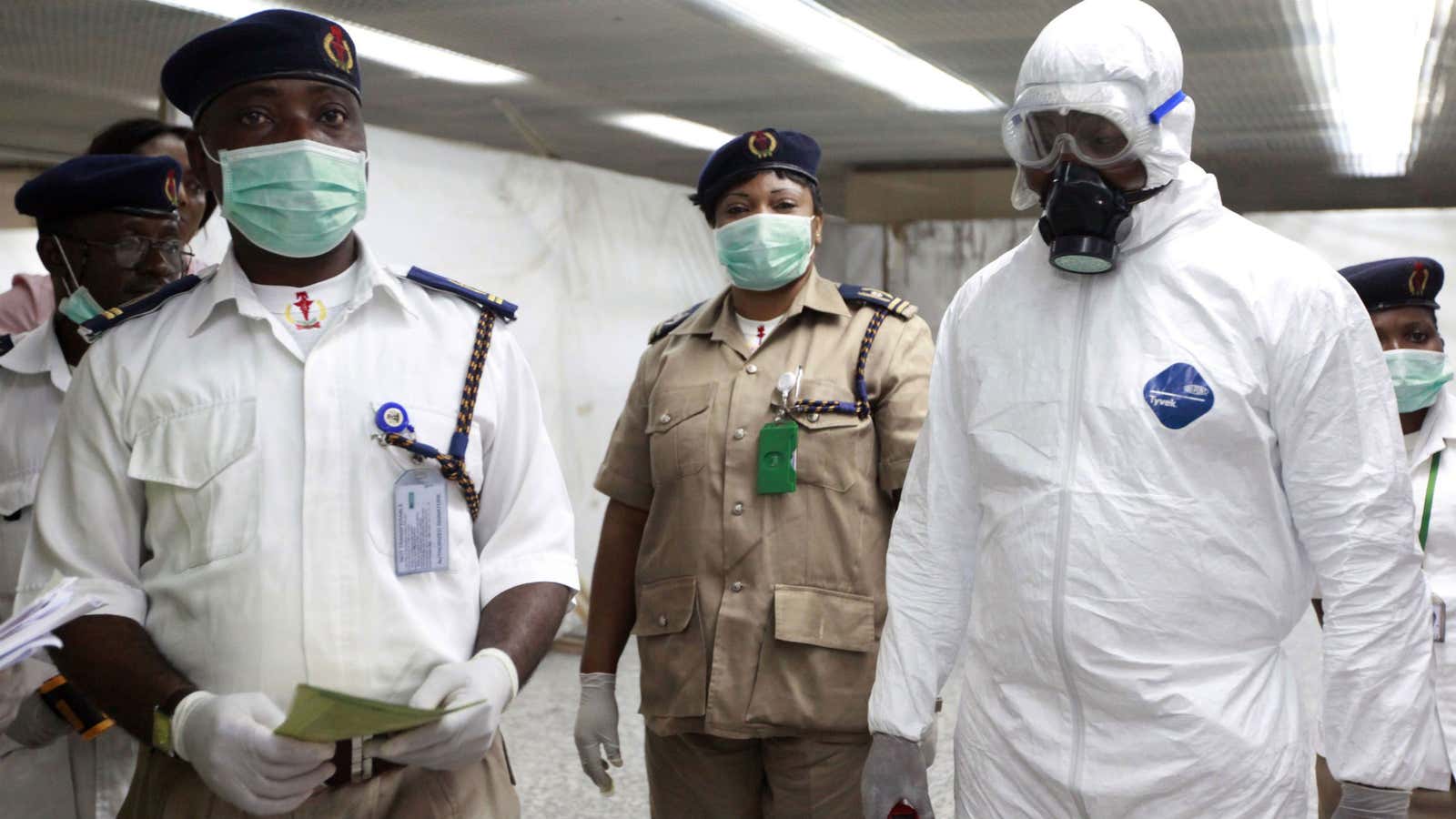While the worst Ebola epidemic in history continues to ravish West Africa—with more than 900 victims since March—an experimental treatment called ZMapp was provided to two Americans who will most likely live.
When the disease reached Nigeria recently, the Minister of Health requested doses of ZMapp from the US government. The US Center for Disease Control (CDC) refused the petition stating there were “virtually no doses available.”
Manufacturing this type of treatment is difficult and time consuming. However, with no end to the epidemic in sight, some are questioning the practice of granting access to this experimental drug for only a select few. If the global community does not address these difficult ethical questions, we risk perpetuating and exacerbating long-standing global inequities in health.
Too often, the poorest and most marginalized in the world lack the opportunities to improve and protect their health. We have seen this play out before with proven drugs for diseases such as AIDS. And we are seeing it once again for experimental drugs for Ebola.
The unique and deadly aspects of the current epidemic make these issues especially pressing. This is the first time an Ebola outbreak has occurred in multiple countries at the same time, and Guinea, Liberia, Sierra Leone and Nigeria are more densely populated than the countries where previous Ebola outbreaks have occurred. They also have more transient populations, giving the virus more opportunities to spread and making it more difficult to identify contacts. The dire situation is compounded by a weak and inadequate public health infrastructure that was further crippled during devastating recent civil wars in Sierra Leone and Liberia.
The “secret serum”
ZMapp is being developed by Mapp Biopharmaceutical, a San Diego-based company with a manufacturing facility in Kentucky. The company received $10 million from the US government over three years to initiate clinical trials for ZMapp.
The investigational therapy, which has never been tested in humans, comprises “three monoclonal antibodies” derived from the serum of mice exposed to the virus. The antibodies are intended to bind to the Ebola virus to help the body jumpstart an immune response to it. When the serum was administered to monkeys immediately after they were infected, the recovery rate was 100%.
The two Americans likely received access to ZMapp through Access to Investigational Drugs Outside of a Clinical Trial, or “compassionate use” clause of the US Food and Drug Administration (FDA). To gain access to an investigational therapy under this clause, “the patient must have a serious or immediately life-threatening disease or condition and no comparable or satisfactory therapeutic alternatives.” It is most commonly used in the US for patients with life-threatening cancer. Ebola, with a high likelihood of death, clearly fulfills this requirement. The other requirement is that the drug manufacturer and the physician must “come to an arrangement” that is approved by the FDA. It is not clear what this means and the FDA has not specified whether it approved the use of ZMapp.
But even if doses of ZMapp were available, another urgent issue needs addressing before the treatment can be administered in the African areas hit by the epidemic. There is currently no accepted international consensus on providing experimental drugs in an outbreak setting, and the international community must urgently agree on accepted standards for when and how experimental treatments might be made available. These standards must also aim to guarantee that all patients, regardless of wealth or geography, have the same opportunity to make decisions regarding experimental treatments during an outbreak.
Though choices
This would not, however, eliminate the need to make incredibly difficult decisions. We know very little about ZMapp. The two Americans seem to be recovering, but they could possibly have recovered even without the therapy. The US CDC estimates that slightly more than 50% of patients are surviving the current outbreak. We also have no idea about the safety of the investigational treatment. How certain can we be that administering ZMapp will not result in more serious cases or possibly more deaths when used?
Another avenue through which some patients might gain access to the ZMapp would be a clinical trial. But testing new drugs in an epidemic setting is also incredibly challenging, especially if the disease is as sporadic and unpredictable as Ebola. If the infrastructure were in place to conduct a trial, there are still many other ethical questions inherent in this kind of clinical research. Is it ethical to have a control group that does not receive the drug? Can patients provide informed consent when faced with near imminent death?
Most importantly, if the drug is indeed found to be effective through clinical trials, new policies must ensure that those infected with the deadly disease must have equal access to the drug. In the past, many experimental drugs tested in poor countries have only been available to those who can afford them when they first become available.
The World Health Organization is convening an emergency meeting this week in Geneva to discuss the ethical issues surrounding the use of investigational drugs in epidemics. Many of these issues will likely be discussed and, hopefully, the international community can agree on fair and ethical principles for allowing access to drugs in these difficult scenarios. Sadly, it will be too late for more than 900 West Africans.
We must not allow history to once again repeat itself. The AIDS epidemic should continue to serve as a reminder to the world what can happen when only those in a particular geography have access to potentially life-saving drugs. Currently, less than 2,000 people have been infected with Ebola in West Africa. For these individuals, and those who may become infected in the near future, we need to act quickly. When only Americans have access to new or experimental treatments, others often die needlessly.
